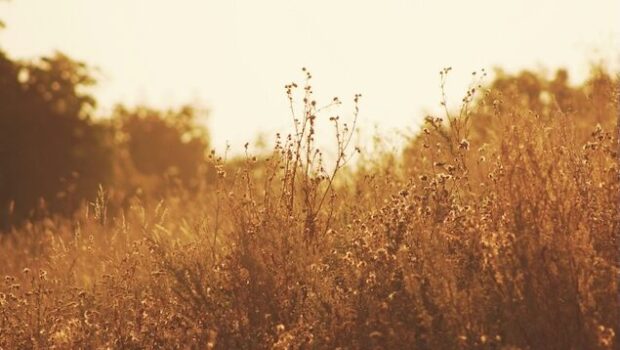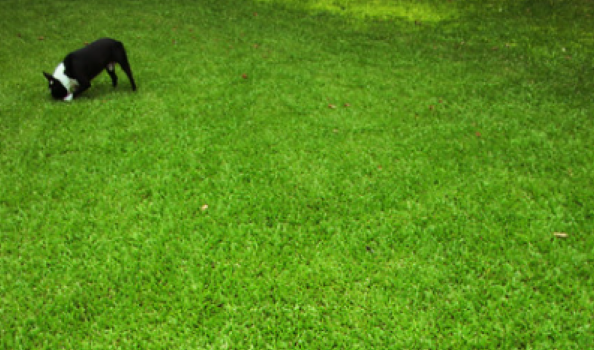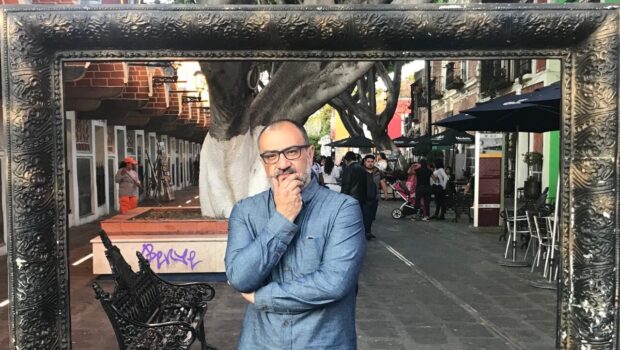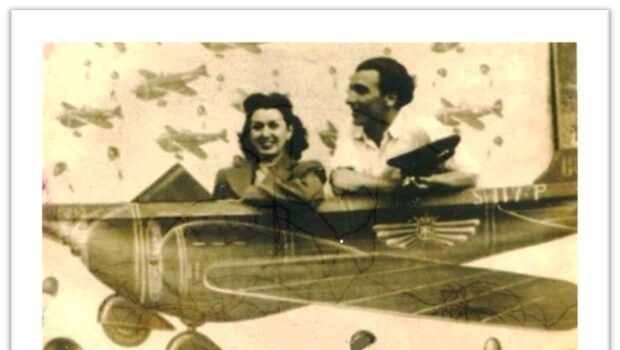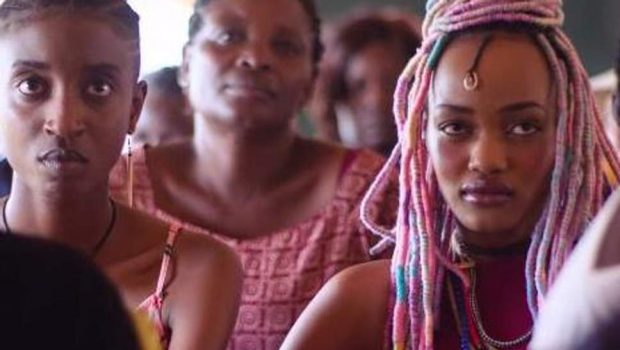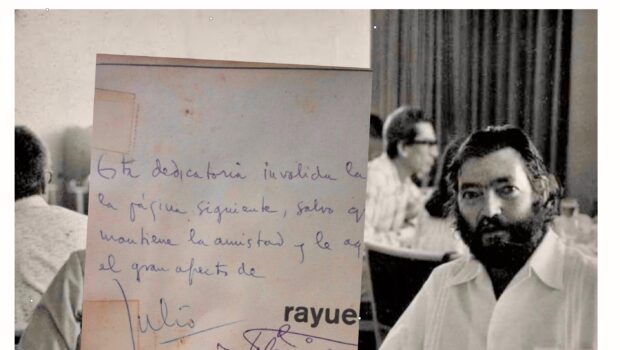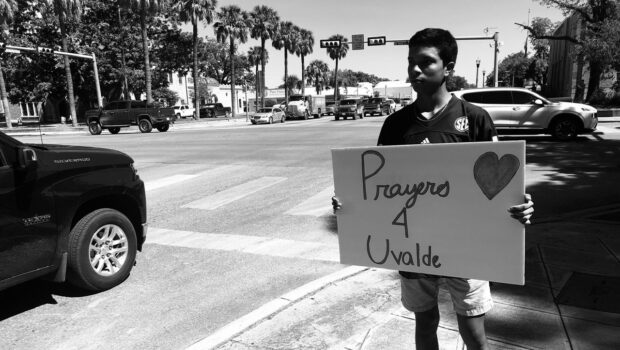Excerpt from So Great Is the Light
Adriana Díaz Enciso
To say that dusk had descended would be inexact. It rather seemed to be seeping from the corners of the meadow, a crawling, not gathering thing that went undetected for God only knows how long until it had enveloped him—and the world around—completely. When he came to (that is to say, when he suddenly found himself looking around him, without knowing how long he’d been there or indeed where he was), all he knew was that some furry darkness made up of an incredibly intense blue permeated the world, spreading out across the horizon to the farthest corner his eyes could reach; that the trees around him were still shadows and that it was hard to make out his feet from the grass on which he tread. He had a vague feeling that it was late, that he should be back home, but found it hard to recollect late for what, and where or even what home was.
‘Am I lost?’, he whispered to himself, with a dislocated longing for someone to answer back, and started walking with no particular direction in that darkness, which was still a concentrated cobalt blue deepened with hints of black, his hands stretched as if for groping, though there was nothing to touch or hold onto ahead of him. He scared off, absent-mindedly, the cloud of gnats that hovered about him like a hallo, making of him something like the figure of a saint, beaten and way before illumination. He shook his hands in angst, as if the gnats were part of the barrier, the veil obscuring his gaze and obstructing his mind.
It was still hot and humid. No breeze. No sound apart from the shuffling of his feet on the burnt grass. The gnats, though they whirled with prodigious energy, were utterly silent too. Lostness became a quite unbearable pressure on his chest. A burden, a black oily lump of dark matter that made him retch and panic. He stumbled, popeyed, looking for a tree to support him, fearing he’d be sick, unsure of who he was, and terrified.
He found no tree, and the dark was darker. Despite the hot air, he shivered, then stopped, bent down, hands on his knees, certain that he would collapse. The weight on his chest was now unendurable, and it was creeping up his throat. He would die, he thought, and fear became a horror, because, though he didn’t know who he was and seemed to have no memories, he knew he was unhappy and alone, and what a terrible thing it is to die when you’re unhappy. ‘There are people’, the thought crossed his mind, ‘that I am letting down. Please don’t let me die like this’. An empty prayer, addressed to no one at all, and just when his chest was about to burst, his mind went all black. He must have lost consciousness for an instant, the micro-fraction of a second. Then a soft thud on the grass not far from him brought him round.
And he was, somehow, OK. Lighter, at least. He drew himself up and took a hand to his chest. No lump of darkness there. Not anymore. In fact, he was drawing deep, unobstructed lungfuls of air. There was no load to carry, no pain. Not physical, anyway.
Now he became aware of some other sound whipping the silence; a quick shuffling on the dry grass somewhere to his left that woke him completely. He hadn’t expected to hear any sound other than that of his own footsteps, for the evening had fallen upon him so quietly, as if the whole earth had gone to sleep. He wondered what animal could walk so fast yet with such steady rhythm. A shiver went down his spine, though no thought managed to reach his reason to account for this.
Slowly he turned to his left—very slowly, and then looked down, struggling to focus on the place the noise came from, for it was getting harder and harder to see.
‘Are you lost?’, asked a voice that was thin and husky at the same time. The distorted sweet music of a stream as it passed through a cheese grater. Alfred shivered again.
The thing beside him was no animal. It had halted at the same instant that Alfred stopped in his tracks, stunned by the inconceivable sound of its voice. It was a darker shade upon the shady grass, just about to melt with the ink spilt by the upcoming night, but its features were still visible. Alfred would have had a clearer view if he had bowed down—the thing couldn’t have been more than fifteen inches high—but he had in fact stepped back, terrified of getting closer. A face was turned up towards him. It was very pale, a uniform sheen of wanness like rice paper, which somehow illumined it in the dark. Thin and chiselled; gaunt, even. Big eyes fixed on him, round and wide open. Alfred thought they were dark blue, just like the night, and he also thought that it was intimidating and rude to stare like that.
But the thing was smiling. He could see as much beneath the thick drooping moustache that nearly touched the jawline. Its nose was delicate, like a China doll’s. It was probably good looking, in its small kind of way. The crimson cloak it wore helped to increase its visibility. It reached to its feet and beyond, trailing behind over the exhausted summer grass. Beneath, where the shirt collar should have been, Alfred thought he saw a bunch of crumpled paper sheets, though he couldn’t be sure.
‘Are you lost, I say?’, the shrill voice asked, with a hint of irritation.
‘Yes, I think I am’, Alfred found himself responding, against his will and petrified by fear.
‘Nonsense’, said the thing firmly. ‘You are not. Not at all. Come on!’
And with that it resumed its walking—crisp impatient strides that, tiny and all, slashed the still air with unwonted harshness.
Alfred couldn’t move, though if he had been able to, it would have been to run precisely in the opposite direction. So he just stood there, looking in disbelief at the minute figure that became smaller as it walked away.
‘Come on, I’m telling you!’, it shouted from the distance, turning to Alfred it’s bright, pallid and now angry face. Then it looked ahead again, and Alfred realised that in the growing darkness even the crimson cloak was becoming a gloom shadow, and that if he lost sight of that face completely, there would be no light whatsoever to show him the way.
That’s why he followed.
Somewhere in the distance he thought he glimpsed a lone, tall flower bowing its heavy head, discernible only for its bright blue petals—as if, Alfred thought, it had drawn to itself all the common blue butterflies in the meadow and arranged them as a tableau in its quivering corolla, but this last brightness was soon engulfed by the crescent night.
‘Hurry, hurry!’, the voice urged him on when he had reached the little figure. He would have been loath to call it the little man, for he wasn’t certain that thing was a man at all.
It wasn’t only the diminutive proportions. It was, perhaps, the way it moved. Alfred was sure that that face was made of flesh; that wasn’t the problem. Whether it was human was the question. The creature was agile and clumsy all at once. It was hard to know whether it was hopping or stumbling. Its arms moved at every step with a jerky start that had something of both the military and the clownish. Alfred thought suddenly that there must be no sinews there. ‘It is’, the thought came to his mind, ‘as if it was made of wood.’ Despite the face.
That’s when he shivered the most. Nevertheless he kept on walking.
‘Where are we going?’, he asked. It might have made more sense to ask ‘Who are you?’, but for some reason he couldn’t imagine himself asking that.
‘Home! I’m taking you home, you fool! Since you’re lost… Misplaced, astray. Perso. Perduto.’
By then they had reached the edge of the meadow. An urban meadow, it should be said by now. Which means that they were now under the lucent influence of streetlights, their feet pounding with an echo on the pavement of a somewhat dismal street, deserted and heavy in the heat of the smouldering evening.
It was a curious street, too. It looked… well, glazed. Sharp and enamelled. Flanked by rows of identical terraced houses, their front gardens adorned by utterly bright, luscious flowers which looked so languid in the hot stagnant air one feared they might actually faint at any moment. And yet, they were decidedly alive, at one with the summer night. Red roses, the red so concentrated it reached a burning blackness at their core, throbbing with the heat their petals had imbibed throughout the long, long day. Huge hollyhocks like alien fauna of all possible colours, tall and wild swaying by their own accord despite there being no breeze at all to alter the evening’s torpor. Pendulous foxgloves, blushed and twinkling like lovely cheap jewels. Hibiscus flowers, their broad petals folded now in sleep but still shimmering and moist, tremulous as though dreaming. The most ordinary garden flowers really, but how oddly they shone! Alfred could swear he heard them humming, an unimaginably ancient, disturbing even, song of life expectant. There was lavender too, a subdued purple shade, and the mixed scent of all this suburban flora in the humid atmosphere went to his head.
Click click, sounded the little creature’s heels, and the trail of its crimson cloak made a swishing sound as it swept the dust behind it, disturbing some discarded chocolate wrappings, Doritos bags. An amber gleam came out of many windows. None seemed to have the curtains or blinds drawn, yet there was no one to be seen in the cosy drawing rooms, kitchens and bedrooms revealed in their glow. Alfred had the distinct impression that the street’s inhabitants were hiding, watching him and his strange companion pass by; he could almost hear them tittering.
He felt so vulnerable he started to cry, softly, soundlessly. The night, though, and despite its sultry heaviness, was beautiful.
The thing heard him—it had perhaps paranormal ears. It turned swiftly to face him and, with a brisk, somewhat mechanical movement pulled an enormous handkerchief out of one of its cloak’s inner pockets. How the handkerchief had managed to go in there was anyone’s guess; so big it was it could have easily covered the whole creature like a sheet.
‘Here’, it said. ‘Wipe your tears. Blow your nose.’
Alfred bowed down, feeling very grateful, and took the hankie to his eyes. He could see that it was embroidered with some unintelligible figures which shone like golden thread.
‘Thank you, thank you’, he whispered. ‘That’s very kind.’
‘You are in trouble, you know?’, said the creature, and kept on walking, click click.
Alfred nodded in agreement. He knew damn well he was, but the lump in his throat obstructed his words, so he said nothing.
‘You just hold tight to the ground. It’s turning, you know. Aaaall the time. But if you hold on tight, you’ll never fall.’
‘That’s what I’ve always said!’, Alfred managed to mumble. ‘It turns and turns, but we just ignore it, we simply can’t see…’
He then realised that he could see, with terrifying accuracy: the street ahead had just plunged in a definite curve moving downwards, all houses and trees and street lamps following suit. A fox came out of one garden, its fur shining like liquid honey, its chest a bib of immaculate white standing out against the deep blue night. It stopped for a fraction of a second to look in the face at the small red-cloaked figure and then—or so it seemed to Alfred—winked; after which it followed nonchalantly the pronounced curve of the earth, with no apparent discomfort, and soon disappeared under the horizon. Alfred and his companion kept on walking too, and at every step the visible stars changed their position, ever so slightly, but positively. It was a moonless night. He felt dizzy, suddenly very scared, and held on to the slender trunk of a young apple tree, its green foliage shining bright as if in a naïve painting.
‘Don’t be absurd!’, cried the creature, which had turned around and was staring at him with an air of exasperated disapproval in its big, fierce blue eyes. ‘It’s with your mind that you have to hold on tight. With your mind, that’s all. L’intelletto. Then you can turn with her leaping and dancing, forever and ever….’
And its voice grew faint as it sped down into the distance with great velocity, performing a very strange dance indeed, made of whirls and leaps, jerky arm movements, much bowing and jostle—against trees, fences, lampposts, the very space—though all in all it was not lacking in grace.
He set off running after this improbable Virgil, afraid of being left behind.
‘But where… where are we?’, he panted.
When he reached the thing, it had stopped at one particular door, and was standing so still and composed that no one would have suspected it had engaged in such singular pirouettes just seconds before. This was the door of a house that for some reason set Alfred’s heart beating fast, though whether with anticipation or dread, he couldn’t tell. The first floor was all dark, but there was a homely glow radiating from the window by the door, and this room, for a change, wasn’t deserted. Two human figures were sitting on easy chairs across a table he seemed to recognise.
‘Home!’, said the creature, pointing with a slender, pale arm, the cloak folding around it in infinite pleats of cherry velvety stuff.
***
Note: So Great Is the Light is Adriana Díaz Enciso´s latest novel. She has been working on its English and Spanish versions simultaneously, with the generous support of Mexico’s Sistema Nacional de Creadores de Arte, a grant awarded by the Ministry of Culture. This is an excerpt from the English version, recently finished, and looking for publishers.
*Foto de Nikita Burdin en Unsplash

Adriana Díaz-Enciso es poeta, narradora y traductora. Ha publicado las novelas La sed, Puente del cielo, Odio y Ciudad doliente de Dios, inspirada en los Poemas proféticos de William Blake; los libros de relatos Cuentos de fantasmas y otras mentiras y Con tu corazón y otros cuentos, y seis libros de poesía. Su más reciente publicación, Flint (una elegía y diario de sueños, escrita en inglés) puede encontrarse aquí.
©Literal Publishing. Queda prohibida la reproducción total o parcial de esta publicación. Toda forma de utilización no autorizada será perseguida con lo establecido en la ley federal del derecho de autor.
Las opiniones expresadas por nuestros colaboradores y columnistas son responsabilidad de sus autores y no reflejan necesariamente los puntos de vista de esta revista ni de sus editores, aunque sí refrendamos y respaldamos su derecho a expresarlas en toda su pluralidad. / Our contributors and columnists are solely responsible for the opinions expressed here, which do not necessarily reflect the point of view of this magazine or its editors. However, we do reaffirm and support their right to voice said opinions with full plurality.
Posted: February 6, 2025 at 6:44 am


